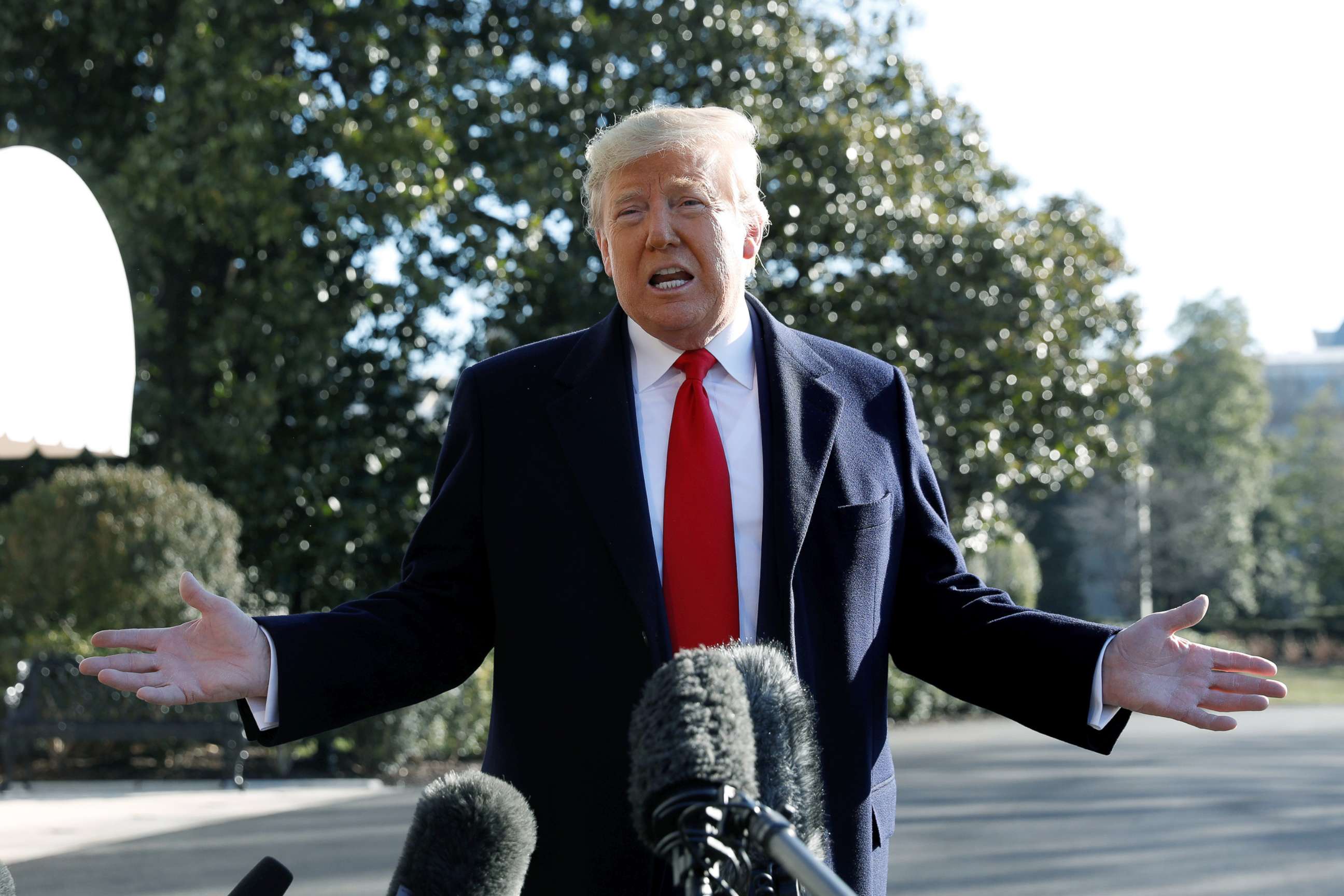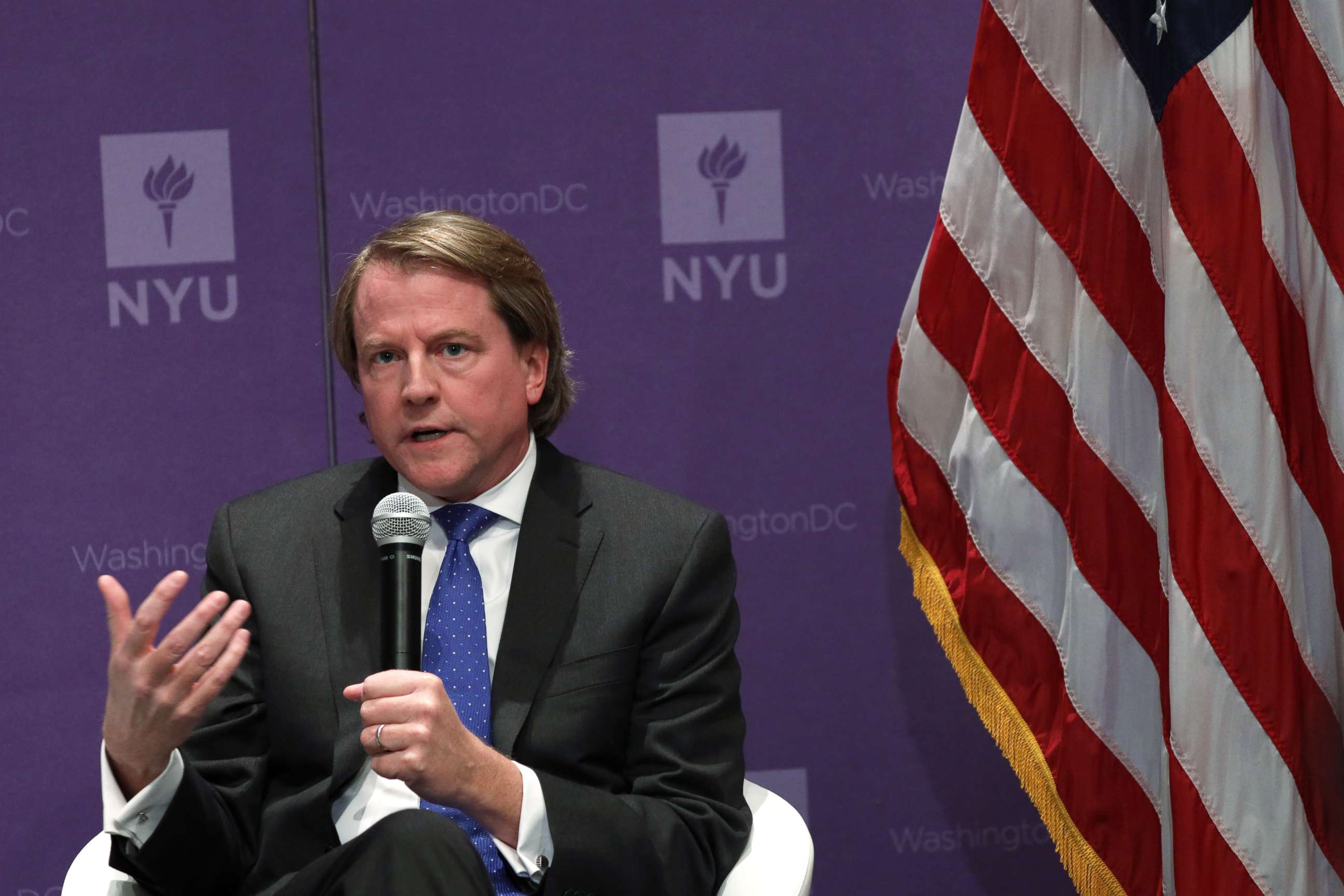Former White House counsel Don McGahn need not comply with congressional subpoena, federal appeals court rules
The ruling grants a major victory to President Donald Trump.
In a two-to-one ruling, a panel of federal appeals court judges on Friday ordered the dismissal of House Democrats’ case seeking the testimony of Donald McGahn -- meaning the former White House counsel would not have to appear before a congressional committee.
The ruling grants a major legal victory to President Donald Trump. The Justice Department, arguing on the president's behalf, has contended that "the constitution forbids federal courts from resolving this kind of interbranch information dispute."
“We agree and dismiss this case,” the judges wrote in their 88-page opinion.
The ruling comes in a case brought by the House Judiciary Committee in August as part of an effort to enforce its subpoena demanding McGahn's congressional testimony about events related to former special counsel Robert Mueller's Russia investigation -- after Trump directed him not to comply.

In November, a federal district judge ruled that McGahn must comply with a congressional subpoena.
But the Justice Department appealed that ruling and, on Friday, won out in the higher court.
“We are extremely pleased with today’s historic ruling from the D.C. Circuit recognizing that the House of Representatives cannot invoke the power of the courts in its political disputes with the Executive Branch," Brianna Herlihy, a DOJ spokeswoman, said in a statement. "Suits like this one are without precedent in our Nation’s history and are inconsistent with the Constitution’s design."
She added," The D.C. Circuit’s cogent opinion affirms this fundamental principle.”

U.S. Appeals Court Judge Thomas Griffith, in his majority opinion, warned that enforcing the committee’s subpoena would amount to an overreach by "unelected judges" -- and risk politicizing the judicial branch.
"If federal courts were to swoop in to rescue Congress whenever its constitutional tools failed, it would not just supplement the political process; it would replace that process with one in which unelected judges become the perpetual 'overseer[s]' of our elected officials," Griffith wrote.
In her dissenting opinion, Judge Judith Rogers argued that the majority's finding may set the stage for future presidents to block oversight requests from the legislative branch with impunity.
"The court removes any incentive for the Executive Branch to engage in the negotiation process seeking accommodation, all but assures future Presidential stonewalling of Congress, and further impairs the House’s ability to perform its constitutional duties," Rogers wrote.
Congressional Democrats sought a speedy decision by the appeals court in an effort to secure McGahn’s testimony before the Senate impeachment trial of Trump concluded.
The Senate voted to acquit the president earlier this month after voting not to allow witnesses in the case.
ABC News' Alex Mallin contributed to this report.




